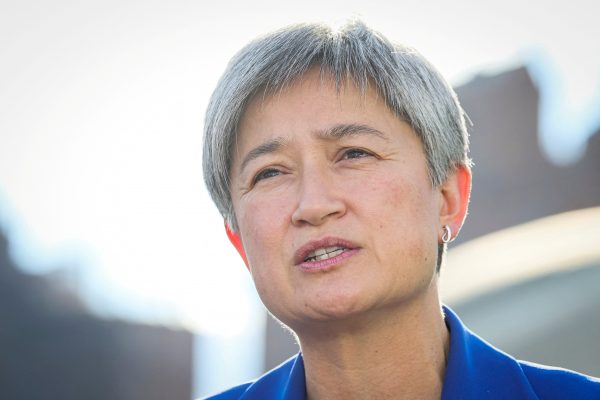Significant effort is going into the bilateral relationship, including a joint plan of action to implement the 2020 Strategic Partnership having recently been announced. Complementing the work taking place at the official level, the Asia Foundation and Australian National University recently held a dialogue on strengthening relations in security, trade, climate and development.
What are the prospects for and limits on increased collaboration between these two Asian middle powers?
On the surface, the relationship is very positive. Thai Ambassador to Australia Busadee Santipitaks refers to ‘longstanding ties of friendship and cooperation’, while former Australian ambassador Bill Paterson describes the relationship as ‘longstanding, close, warm, largely trouble-free and broadly policy compatible’. There are strong people-to-people relations through education and tourism.
The defence relationship is also longstanding and deep. The Royal Thai Armed Forces are full of alumni from Australian institutions, including the Staff College, UNSW Canberra and — in the case of the most famous alumnus, King Rama X — the Royal Military College Duntroon.
There is a long history of joint military and peacekeeping exercises. That has led to mutual respect and ease in working together, for example, in missions in Timor-Leste. The 2020 Strategic Partnership declaration covers enhanced cooperation in defence and security, cyber affairs, anti-money laundering and transnational crime.
But the fundamental difference in how Australia and Thailand see the United States and China puts a ceiling on this cooperation. Thailand does not see China as a threat in the same way that anxious Australia does. While Thailand is a treaty ally of the United States, its relationship with the United States is much more delicate than Australia’s more institutionalised relationship.
Thailand seeks a balance of foreign influence rather than aligning with one great power. It tends to avoid confrontation and promote harmony, meaning that it has been concerned that Australia’s stance on China will fuel escalation.
Australia is now presenting initiatives like AUKUS and the Quad as a balancing act that helps maintain space for countries in the region. It presents its aims in terms of supporting a strategic equilibrium ‘where countries are not forced to choose but can make their own sovereign choices … about their alignments and partnerships’. That aligns more with Thai views.
But strategic divergence puts a limit on how far cooperation can be taken. The other factor that puts a ceiling on cooperation is the authoritarian tendencies of Thailand’s political system. Australia is pragmatic in how it engages with the post-coup government. But in a crowded space, this has an impact on where to give focus and energy.
Australia cannot help but be disappointed with Thailand’s inability to make a positive contribution to the deteriorating situation in Myanmar. Strong military ties between Thailand and Myanmar suggest there is potential for influence. Australia might hope for Thai support for ASEAN countries that have responded strongly to the crisis.
While Thailand remains reluctant to play a peacemaker role, it has shown interest in further collaboration with Australia on development programs in the Mekong. Both Thailand and Australia care about development in the other so-called ‘ACMECS’ — Laos, Vietnam, Cambodia and Myanmar — so there is potential for Australia and Thailand to work together as part of Thailand’s ambitions in the region. With Australia stabilising and increasing its development programs with a clear focus on Southeast Asia, development cooperation may provide a positive agenda for joint action.
It is hard to see any significant change in trade. Australia–Thailand trade is supported by not just one but three trade agreements — the Thailand–Australia Free Trade Agreement, ASEAN–Australia–New Zealand Free Trade Area and the Regional Comprehensive Economic Partnership. That suggests that both governments have probably done all they can. Now industry has to develop an interest.
Australian firms trying to diversify away from Chinese markets may notice the opportunities in ASEAN’s second-largest economy. But most will likely overlook these possibilities due to culture, language and regulatory constraints as well as a lack of market understanding.
One area of cooperation that generates enthusiasm is energy and water, in which the change in Australia’s climate policy has opened limitless opportunities. Now that Canberra aims to become a renewable energy superpower, there is official support for engagement in areas like floating solar panels, battery energy storage, green hydrogen and integrating renewable energy into grids.
Since most cars sold in Australia are manufactured in Thailand, there is real potential to promote the uptake of electric vehicles. An Australia–Thailand Energy Policy Dialogue is exploring these areas of cooperation.
‘The ASEAN way’ involves building trust by selecting ‘low-hanging fruit’ rather than focussing on big differences. To progress Australia–Thailand relations, Australia needs to work up from small and doable issues rather than focussing on the very real strategic differences. This approach gives the kangaroo and elephant a way to move forward together.
Melissa Conley Tyler is Executive Director of the Asia-Pacific Development, Diplomacy & Defence Dialogue (AP4D).

